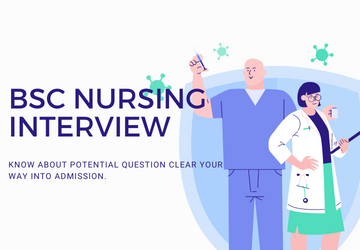Canada
Study in a big city or a small, you are guranteed to receive world class life with cool climate.
Choosing to study in the UK from India is a one-of-a-kind experience that provides high-quality education and academic success and the opportunity to absorb a wealth of cultural understanding and values. Their high-quality courses and unwavering commitment to education and performance will help you flourish in your area of expertise, preparing you for the perfect employment for your skillset. And indeed, there is much employment available in the UK for Indians.
Popular Courses in Humanities, Social Science, Art, Design, Business, Technology, Science, and more are available in the United Kingdom! In the United Kingdom, a Bachelor's degree takes just three years to complete, and a Master's degree takes only one year.
Capital
Living Cost
Language
International Students
Pathway
Dialing Code
Currency
Universities and Colleges
PR
Stay back
FAQ
Course fees range amongst universities in the United Kingdom. The average cost of a UG programme in the United Kingdom ranges from £9,000 to 30,000. (INR 9,00,000- 30,00,000). The prices for postgraduate studies range between £15,000 and £35,000. (INR 15,00,000 -35,00,000). MBA programmes in the United Kingdom range in price from £12,000 to 80,000. (INR 12,00,000- 80,00,000).
Yes, international students participating in a full-time programme are permitted to work 20 hours per week during their stay. Students engaged in a language course have their time cut to 10 hours per week. During vacations, however, there is no time limit on working hours.
Yes, you may study in the UK without taking IELTS! Alternatives to IELTS may include online interviews conducted by a university or a major in English, as well as high school certification. These may not be applicable to all universities, however some do provide this option. Among the universities that offer this pathway are the University of East Anglia, the University of Bristol, the London Southbank University, and Brunel University.
According to the new rule, Indian students will now be able to receive a two-year work visa following completion of their degree, paving the way for permanent residency in the country. There are numerous opportunities for a lucrative job after studying in the United Kingdom. As a result, it is critical that you connect well with your course while also keeping an eye out for suitable employment options!
The following are some of the most popular universities in the United Kingdom, based on academic reputation, employability, and research impact. Queen's University Belfast University of Bath University of East Anglia Swansea University Anglia Ruskin University Middlesex University University of the West of England - UWE Bristol Coventry University Brunel University London
Each university has a different minimum needed score. Most universities, however, favour individuals who have at least 60% at the undergraduate level and 70-75 percent at the graduate level.
Requirements
 IELTS (if applicable)
IELTS (if applicable)  Academic Transcripts
Academic Transcripts  Letter of Recommendations (LORs)
Letter of Recommendations (LORs)  Passport
Passport  Portfolio (for specific courses)
Portfolio (for specific courses)  Statement Of Purpose (SOP)
Statement Of Purpose (SOP) Universities
Coventry, UK
 Ranking 19
Ranking 19 Coventry University is a forward-looking, modern research university. Modern technology is available in all academic subjects including computer science, health, design and enginee
Belfast, Northern Ireland
 Ranking 19
Ranking 19 Founded in 1845 as Queen's College Belfast, one of three Queen's Colleges in Ireland, Queen's University Belfast became an independent university in 1908 and is the ninth oldest un
Liverpool, North West
 Ranking 19
Ranking 19 A great research, knowledge and innovation powerhouse, Liverpool University International students, specialists, and partners flock to MIT. Our work changes lives and shapes the gl
Lancaster, North West
 Ranking 19
Ranking 19 The Lancaster University campus is unique! Several well-equipped learning centres and study rooms are located on campus. It's also a place of close-knit solidarity and a strong sen
London, Greater London
 Ranking 19
Ranking 19 Kingston University takes great pride in the difference they make in the lives of their over 16,000 students and the wider community they serve. They are constantly striving to pro
London, Greater London
 Ranking 19
Ranking 19 Brunel University London is a world-class university based in Uxbridge, West London. BUL is built on a heritage of working closely with businesses, governments and the not-for-prof
Middlesbrough
 Ranking 19
Ranking 19 Teesside University generates and applies knowledge that contributes to the economic, social and cultural success of students, partners and the communities they serve. Through educ
Hertfordshire, East of Englan
 Ranking 19
Ranking 19 The University of Hertfordshire is the UK's leading business-facing university and an exemplar in the sector. It is innovative and enterprising and challenges individuals and organ
Opportunities
Maximum of 20 hours per week for regular students, Maximum of 10 hours per week for language center students
Students completing a Bachelors or Masters program get a work VISA of 2 years. PhD graduates get a work VISA of 3 years.
Useful Links
https://study-uk.britishcouncil.org/
Top study destinations
Blogs

Worried about meeting your expenses in UK?...

Be prepared for your nursing interview, clear doubts and confusions....